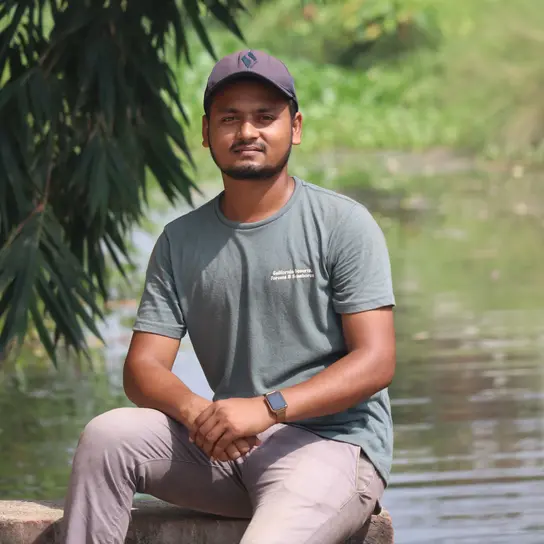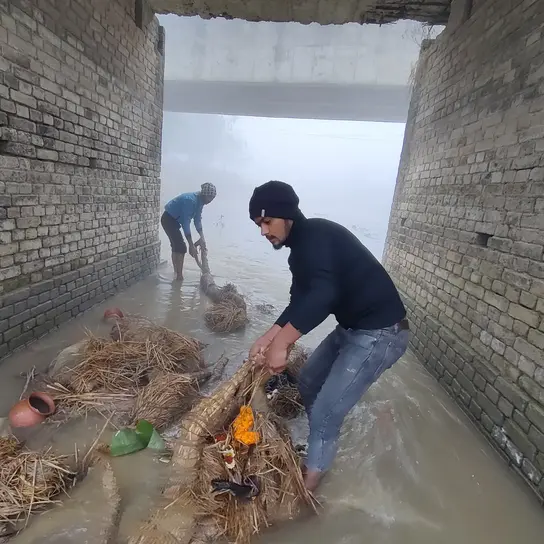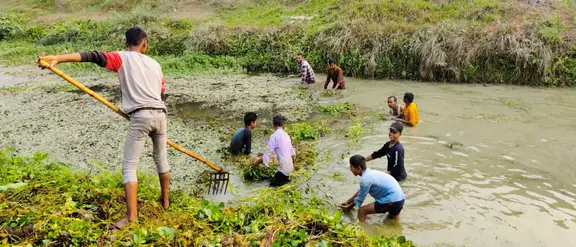Nepal: Young people protect their environment
The Dudhmati is an important river for Hindus. It is considered the birthplace of the goddess Sita. But the sacred river has become a garbage dump. For four years, Aanand (21) has been fighting against mountains of trash and land speculators – and is therefore facing increasing opposition.

“My grandfather used to drink from the Dudhmati River. That’s no longer possible. Factories discharge their wastewater unfiltered. And because we don’t have a landfill, people throw everything into the Dudhmati. Instead of drinking river water, we now have to get water from the ground. And to do that, we have to dig deeper and deeper.”.
Since I was 13, I've been involved in children's rights activism. At 17, I started fighting to protect the Dudhmati River. At the time, the local authorities had decided to connect sewage pipes directly to the river, which would have resulted in even more garbage being flushed into the Dudhmati. Together with friends, I began writing letters to the local government, protesting against the sewage project, and organizing clean-up events.
We succeeded in preventing the canals from being built in our community. But the local authorities simply built them further downstream, where there was no opposition. We knew we had to do more. Since then, we've been urging politicians and authorities to live up to their responsibilities. We plant trees along the riverbank, run information campaigns, and conduct workshops in schools.

The headwind is getting stronger
Not everyone is happy about this. Because of our efforts, people can no longer easily dispose of their trash in the Dudhmati River. Many think we're being paid for it – and they hurl insults at us. Some time ago, influential people started building on the riverbank. This is driving up prices. And the more money involved, the stronger the opposition becomes. We're now receiving threatening phone calls. I place great hope in the children's right to a healthy environment, as affirmed by the UN Committee on the Rights of the Child. It's crucial now that governments implement these regulations. Including in rural areas. Including small, marginalized communities like ours, which are vulnerable to environmental threats
